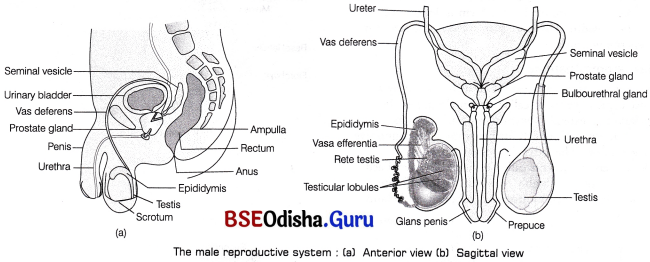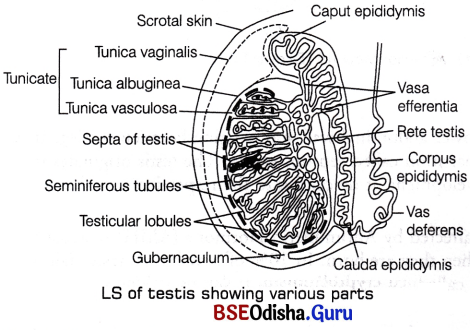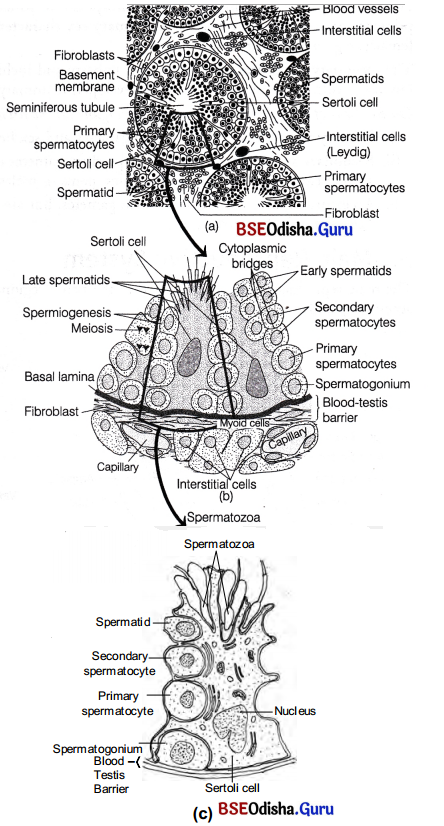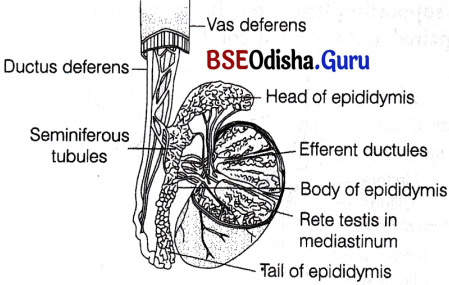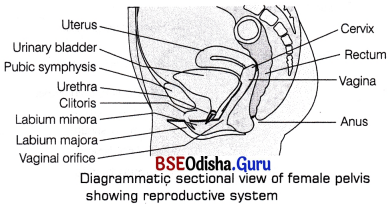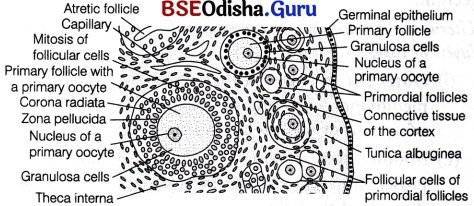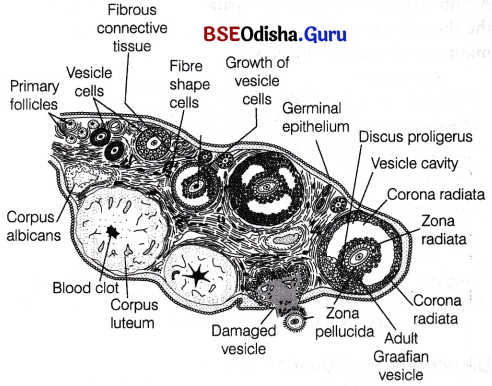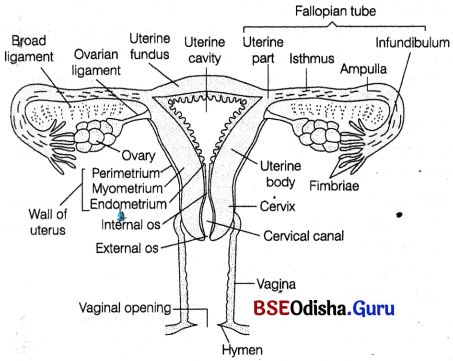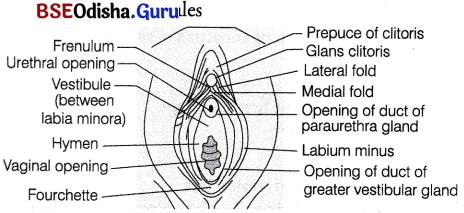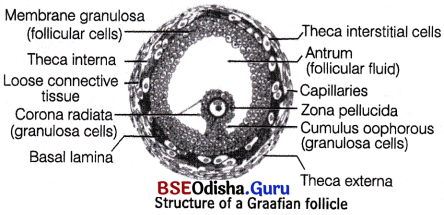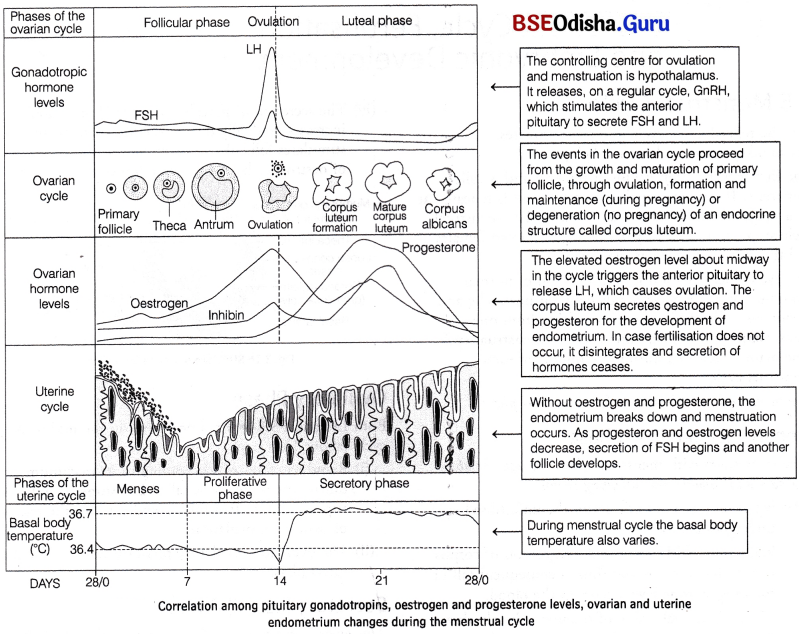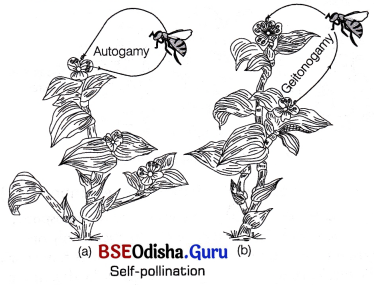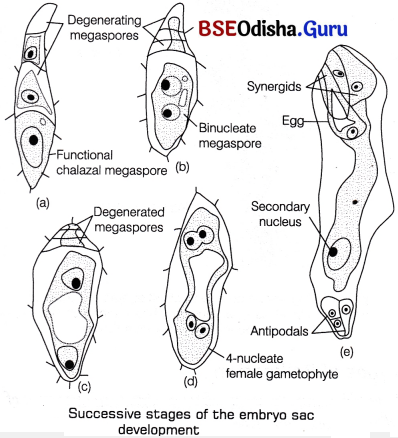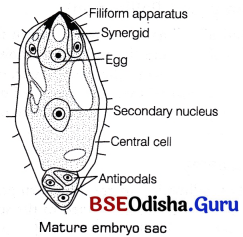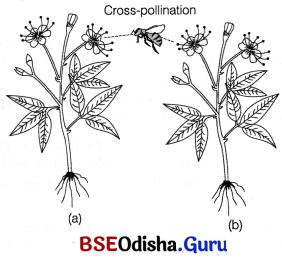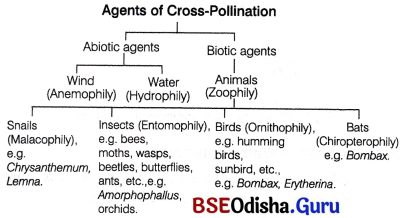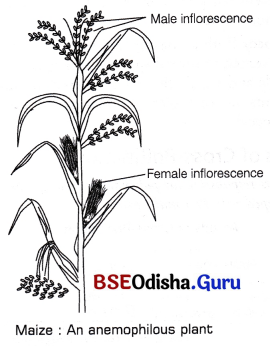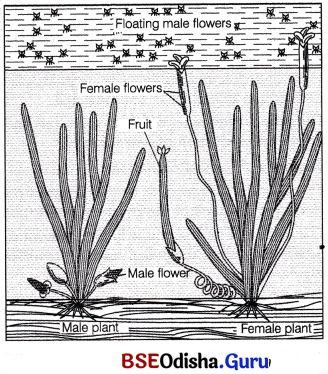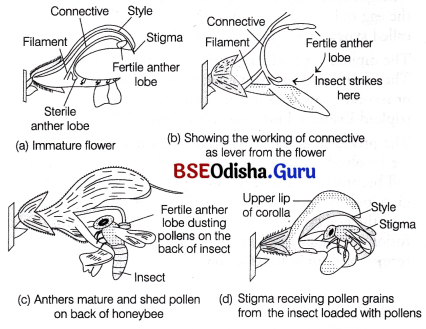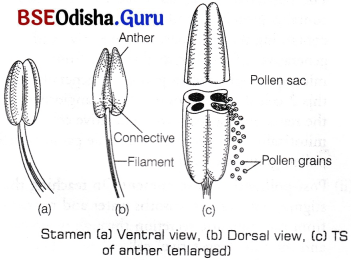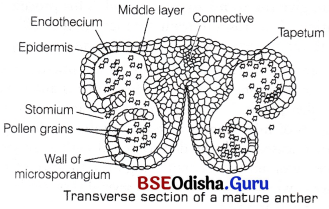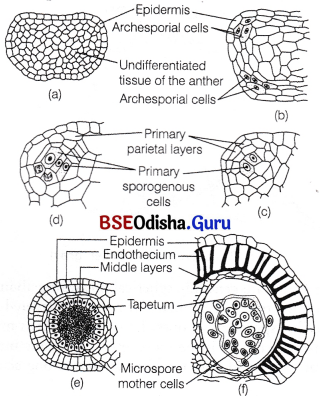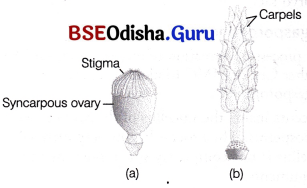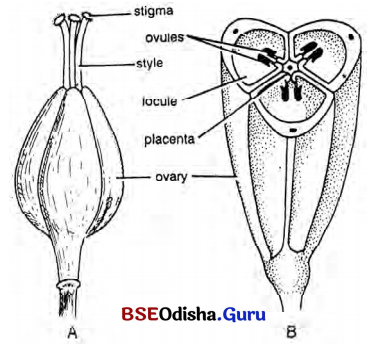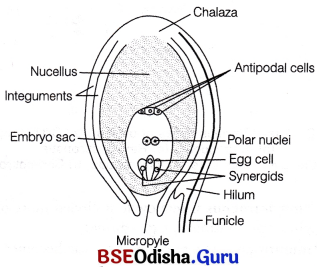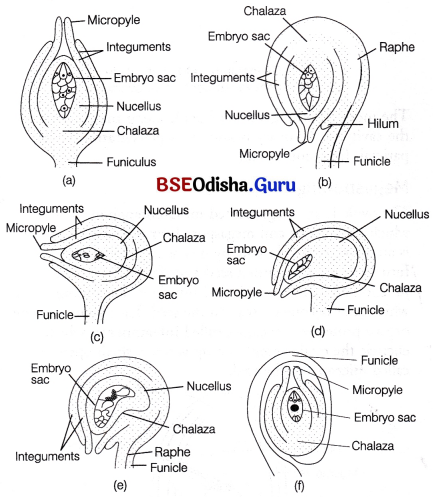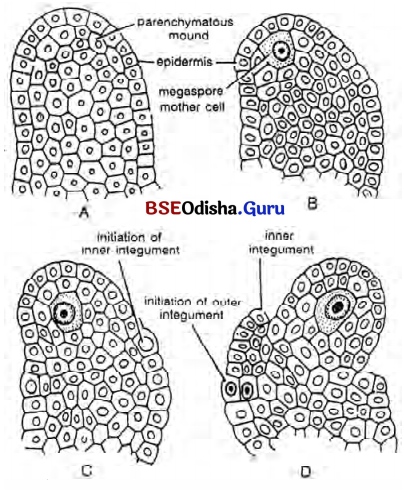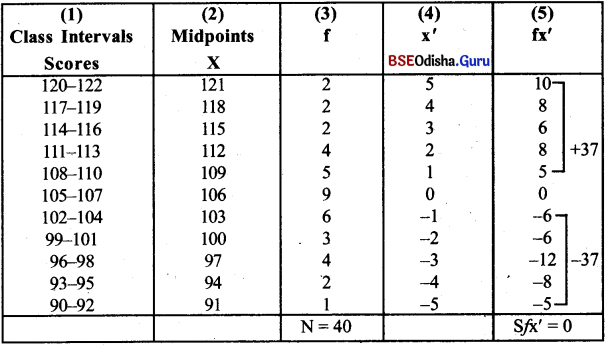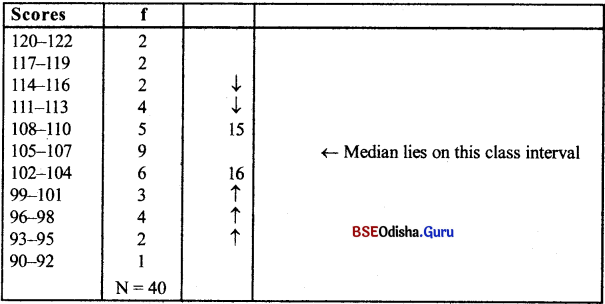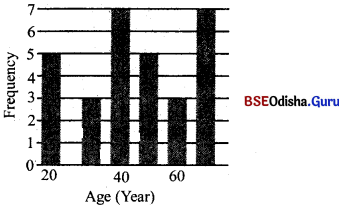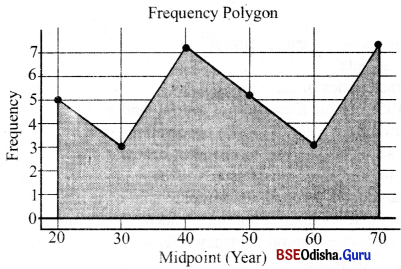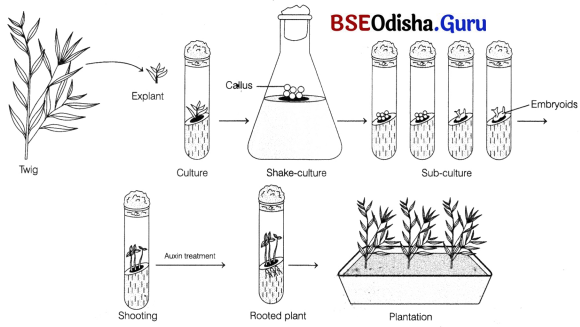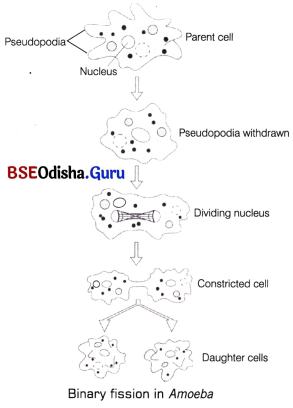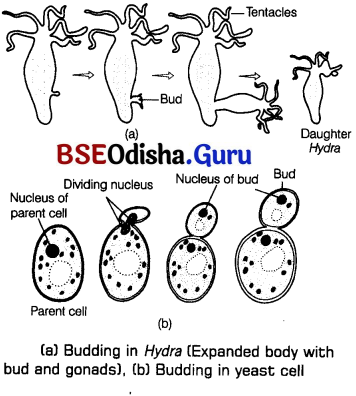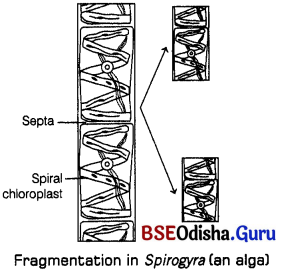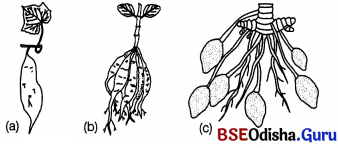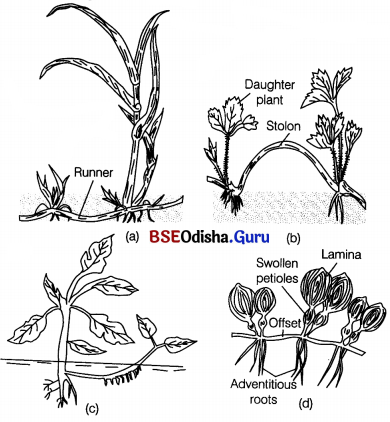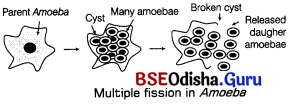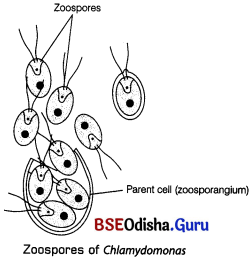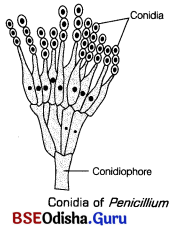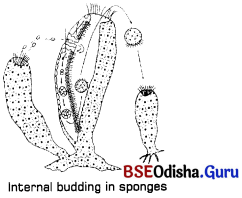Odisha State Board CHSE Odisha Class 12 Economics Solutions Chapter 11 Theory of Income Determination Questions and Answers.
CHSE Odisha 12th Class Economics Chapter 10 Question Answer Theory of Income Determination
Group – A
Short type Questions with Answers
I. Answer with in Two/Three sentence.
Justify the statement:
Question 1.
In full employment, Aggregate Demand (AD) = Aggregate supply (AS).
Answer:
In full employment all the existing resources sum to be fully employed & hence total expenditure in final goods & services at given lenel of employment becomes equal to aggregate supply (CAS) So, in full employment, AD = AS,
Question 2.
Full employment is an Imaginary concept.
Answer:
Full employment is a situation in all resources are employed. But in this situation, there may be frictional, structural second & above all voluntary unemployment. So it is an imaginary concept.
Question 3.
Excess demand leads to inflation.
Answer:
Excess demand arises when total expenditure on goods & services (AD) exceeds the value of aggregate supply of goods & services (AS). So, it leads to inflation.
Question 4.
Deficient demand leads to depression.
Answer:
When aggregate demand for goods & services in the economy falls short of available aggregate supply (AS), it causes deficient demand. This leads to depression.
Question 5.
Full employment is an imaginary concept?
Answer:
Full employment is a situation in which there is no involuntary unemployment though there may be frictional, sturucture or voluntary unemployment, so the concept of the full employment is practically an absurd concept.
![]()
Question 6.
Under employment is very much visible in UDCs.
Answer:
In UDCs, the persons who seem to be employed are not properly placed according to their qualification, skill experience. Besides, most of the people don’t get the job throughout the year, hence underemployment is quite visible in UDCs.
Question 7.
Aggregate demand curve slopes upward.
Answer:
Aggregate demand represents total expenditure spent on final goods and. services which increases with the increase in employment level/ income. As aggregate demand curve reveals the relationship between employment and total expenditure on final goods (C +1 + G), it slopes upward.
Question 8.
Effective demand is normally desirable.
Answer:
The demand at which AD = AS it is called effective demand and it tells about the equilibrium situation in the economy. Besides, it does not reult any economic crisis for which it is normally desirable.
Question 9.
Excess aggregate demand leads to inflation.
Answer:
If AD > AS, it indicates that the total expenditure on final goods and services exceeds the value of total goods available in the economy during a particular time. In this case, investment exceeds consumption which leads to inflation.
Question 10.
Deficient aggregate demand leads to deflation.
Answer:
In deficient aggregate demand AD < AS i.e., total expenditure on final goods & service is less than the available supply. Here, saving exceeds investment and it leads to deflation.
Question 11.
Consumption can never be zero ? .
Answer:
Consumption increases with the increase in income though consumption does not increase to the extent of increase in income. If income is zero consumption shall not be zero as the consumer can spend out of his past saving, borrowing etc.
II. Answer with in Five/Six sentence :
Write Short Notes on :
Question 1.
Agregate demand.
Answer:
Indirect tax is that tax the burden of which can be shifted or transferred from one to other. This tax is legally imposed on a person who actually does not bear the ultimate burden of such tax. Rather, he is able to shift this burden to other persons who are not aware of such tax. In economic term, the impact & incidence of such tax fall on different person. Sales tax is an example of such tax.
Question 2.
Aggregate supply
Answer:
Aggregate supply is reflected by the total volume of national product produced in the country at a given level of employment. In other words, it refers to the flow of total volume of goods & services during a particular period. It is also the aggregate cost of production which goes to the factors of production by the way of rent, wage interest & profit. It is assessed as the sum of consumption & saving.
Question 3.
Full Employment equilibrium.
Answer:
The level of equilibrium is attained at the point of interaction between aggregate demand and aggregate supply. There are three possible situations where equilibrium may be established. It may be at the level of more than full employment or less, than full employment or at full employment. Full employment refers to a situation where all the available resources get employed and production is maximum. This is an ideal situation.
Question 4.
Excess demand.
Answer:
(i) Excess demand refers to a demand condition over and above the output available under full employment condition of the economy.
(ii) In this situation aggregate demand is more than aggregate supply.
(iii) Excess demand leads to emergence of inflationary gap in the economy.
(iv) Excess demand gives rise to price rise in the economy
Question 5.
Deficit demand.
Answer:
(i) Deficit demand refers to a situation below the level of output available at full employment equilibrium.
(ii) Aggregate supply remains higher than aggregate demand.
(iii) It generates deflationary gap in the economy.
(iv) Deficit demand leads to fall in price out put and employment
![]()
Justify the following statement:
Question 6.
The Keynesian theory of income and employment ignores aggregate supply function.
Answer:
The aggregate supply function in an economy is influenced by utilisation of available resources and state of technology. The resource base cannot be increased or decreased in the short period, so also the technical production condition. State of technology influences the productivity of man, material and machines. State of technology cannot be altered in the short period. Hence, the aggregate supply function is assumed to be constant in the short period. So in Keynesian analysis of income and employment determination the aggregate supply function has been ignored.
Question 7.
The Keynesian theory of employment is based upon rejection of the Say’s law of market.
Answer:
The classical economists, basing upon the Say’s law of market, i.e. supply creates its own demand, were of firm view that the economy tends to be in the level of full employment and if there is any disequilibrium it is automatically adjusted. Keynes rejected the classical contention. He maintained that a situation of full-employment is rarely found. There always exists involuntary unemployment because equality between aggregate demand and aggregate supply doesn’t always clear the labour market. Aggregate demand falls short of aggregate supply. Investment is not equal to savings. So there is deficiency of demand.
Question 8.
Aggregate demand function determines the level of employment and output.
Answer:
The aggregate demand function comprises (1) Private consumption expenditure, (2) Private investment expenditure, (3) Public investment, and (4) Net export. Consumption expenditure has a tendency to lag behind income. Since consumption increases less than income, the gap between income and expenditure widens as income grows. In order to maintain aggregate demand at a desired level it is necessary to increase investment. Since aggregate supply is taken to be fixed in the short period, aggregate demand is said to determine the level of employment and income.
Question 9.
Different aggregate demands are associated with different levels of output.
Answer:
The other name of aggregate demand is effective demand. The aggregate demand represents a flow of monetary expenditure on final goods and services produced during a given period. It is the total money receipts that the producers expect to get by selling the output produced at a particular level of employment. Hence, it is said that, different aggregate demands are associated with different levels of output.
Question 10.
Marginal propensity to consume is more in case of the poor as compared to the rich.
Answer:
Marginal propensity to consume is the rate of change in consumption to change in income. As income increases consumption increases but less than proportionately. The propensity to consume in case of the rich is low, but it is high in case of the poor. This is because the poor having low income cannot profit all their demand. As income is redistributed in favour of the poor their income increases and their consumption expenditure also increases in order to fulfil their demand.
Question 11.
Assumption of full employment condition in the economy is illusive.
Answer:
The assumption of full employment is illusive as all that is produced is not sold in the market nor all income is converted into expenditure. There does not prevail form competition in the product market and factor market. All that is saved is not invested. As a result aggregate demand falls short of aggregate supply and there is over production and involuntary unemployment. Hence, full employment condition in the economy is illusive.
Question 12.
The remedy for unemployment can be found in a flexible wage and price system.
Answer:
The classical economists ruled out the possibility of persistent unemployment in the economy. However, if there will be temporary unemployment it can be corrected, as asserted by Pigou, by following a flexible wage and price policy. Prof Pigou maintained that a temporary unemployment situation can be remedied by following a policy of wage cut. It would be possible if workers are made to accept lower wages. A wage cut will reduce the supply of labour and increase the demand for labour. Constantly supply of labour will be equal to demand for labour. Unemployment will thus disappear. But this is not possible as pointed out by Keynes. A wage cut while reducing costs also reduces income apd purchasing power which creates unemployment due to reduction in effective demand.
(B) Distinguish Between
Question 13.
Aggregate Demand & Aggregate Supply.
Answer:
(a) Aggregate demand refers to the total amount of expenditure spent on final goods & services at a given level of employment whereas aggregate supply refers to the total volume of goods & services supplied at a given level of employment.
(b) Aggregate demand is the maximum quantity of goods & services at a given level of
employment whereas aggregate supply is the minimum sale proceeds expected at a given level of employment.
(c) Aggregate demand is composed of consumption demand & Investment demand. On the other hand, aggregate supply is composed of consumption & saving.
Question 14.
Full employment equilibrium & Underemployment equilibrium.
Answer:
The level of equilibrium is attained at the point of interaction between aggregate demand and aggregate supply. There are three possible situations where equilibrium may be established. It may be at the level of more than full employment or less than full employment or at full employment. Full employment refers to a situation where all the available resources get employed and production is maximum, This is an ideal situation.
Under-employment equilibrium refers to a situation when available supply of goods equal to the demand but resources remain unutilised in the economy. There is excess capacity in plants and industries. This situation of equilibrium is struck not due to low level of aggregate supply but due to the low level of aggregate demand.
Question 15.
Excess demand & Deficit Demand.
Answer:
Excess demand :
- Excess demand refers to a demand condition over and above the output available under full employment condition of the economy.
- In this situation aggregate demand is more than aggregate supply.
- Excess demand leads to emergence of inflationary gap in the economy.
- Excess demand gives rise to price rise inthe economy Deficit demand:
- Deficit demand refers to a situation below the level of output available at full employment equilibrium.
- Aggregate supply remains higher than aggregate demand
- It generates deflationary gap in the economy
- Deficit demand leads to fall in price out put and employment
Group – B
Long Type Questions With Answers
Question 1.
Explain the concept of aggregate demand and aggregate supply.
Answer:
A discussion of aggregate demand and aggregate supply is relevant in the context of determination of employment and output as discussed by Keynes. According to Keynes a situation of full employment rarely comes about as aggregate demand falls short of aggregate supply. In such a situation the unemployment which arises due to deficient demand is described as involuntary unemployment. In a situation of involuntary unemployment people willing to work at current rate of wages do not find employment.
Aggregate demand – Aggregate demand or aggregate expenditure refers to total expenditure on goods and services during a year. Demand for goods and services may be for consumption, investment and net export. Consumption demand may be divided as private consumption demand and public consumption demand. Investment demand may arise from private sources and public sources. Aggregate demand depends upon level of employment and there is a direct and positive relationship between them. Aggregate demand consists of (a) Household consumption demand (b) Investment demand, (c) Government demand for goods and services, and (d) Net export demand. These elements may be discussed as under.
(a) Households’ consumption demand – Household consumption depends upon the income of the household. A house- hold pays personal taxes from its income and the remainder known as disposable income, is devoted for consumption. The relationship between disposable income and consumption is called consumption function or propensity to consume. As one’s income increases consumption increases but less than proportionately often subsistence level. Consumption function, according to Keynes, plays an important role in determination of employment. Employment depends upon effective demand and effective demand depends on consumption functions. The relationship between consumption and income is expressed in the formula C – f(Y). C stands for consumption and Y stands for income. This formula suggests that a change in income is followed by a change in consumption.
(b) Investment demand – Investment refers to that part of savings which is used for production of capital goods. All that is saved in all economy does not flow into investment channels. Investment involves risk. People want their hard earned saving to be safe in the hands of investors. Since people part with their savings they face inconvenience. So they must seek to be compensated for the risk and inconvenience they face. If investors get more return than what they sacrifice, then they can adequately compensate the savers. The return on invest expressed as a percentage of investment is termed marginal efficiency of capital. It may be defined as the expected rate of interest on all additional units of capital goods. There is an inverse relationship between rate of interest and investment demand. In other words, at higher rates of interest investment demand will be less and vice versa. The curve representing marginal efficiency of capital is therefore downward sloping.
(c) Government demand for goods and services – Like private consumption demand of households and firms, goods and services are demanded by the government for the institutions run by it. The policy and practices of the government determine the quantum of demand.
(d) Net exports demand – The difference between exports and imports represents the net exports. Net exports depend on foreign demand for domestic goods and services. Foreign demand is influenced by the foreign exchange policies of the trading countries, relative price of goods, political relations between trading countries etc.
The aggregate demand can be represented diagrammatically as follows.
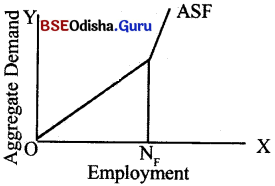
In the diagram employment is shown on OX axis and aggregate demand on the OY oxis. The aggregate demand function, ADF intercepts the Y axis a point P, implying that even at zero level of output and employment there is some amount of aggregate demand present in the economy. The aggregate demand which consists of all the components cited above is nothing but the proceeds expected by the entrepreneurs in the economy.
To sum up AD = C +1 + G + (x-m) = ED = Y
C – Stands for consumption expenditure
I – Stands for investment expenditure
G – Stands for government expenditure
(x-m) – Stands for net exports (exports-imports)
ED – Stands for effective demand
Y – Stands for national income.
Aggregate supply : Aggregate supply consists of goods and services produced in the economy during a year, by individuals, firms and the government. The net national products represent the aggregate supply. It is the aggregate cost of producing goods. It represents the minimum sale proceeds which the producers get. The sale proceeds constitute the income of the producers which they pay to factors as rent, wage, interest, profit. Income, thus generated is either consumed or saved.
Consumption and savings are the two constituents of income. This can be expressed as AS = C + S. Aggregate supply is influenced by additional utilisation of resources and technological improvement. Technology cannot be charged in the short period. Increase in aggregate supply is possible only through additional use of resources. So long as resources are not fully employed it is possible to increase supply of goods and services in proportion to employment of resources and vice versa.
This relationship can be expressed diagrammatically as follows :
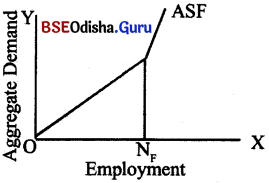
In the along side diagram the aggregate supply function is represented by AS line which starts from origin.-It shows that aggregate supply in the economy increases as employment increases. After full employment level is reached, the ASF becomes perfectly inelastic.
Question 2.
How is the equilibrium level of income determined in the economy?
Answer:
The theory of income determination forms an integral part of macro-economics. J. M. Keynes, a prominent British economists propounded this principle in his book “General Theory of Employment, Interest & Money. “According to Keynes, the level of income & employment in an economy depend on the “effective demand”. The effective demand is an integral part of the theory which consists of interaction of the two determines the effective demand as well as the equilibrium level of income.
Aggregate demand: Aggregate demand refers to the total expenditure incurred on goods & services produced in the economy at a given level of employment. It consists of household consumption demand, private investment demand, government demand & net export demand. The sum of all these components give rise to aggregate demand.
Total Household consumption demand includes the demand for goods & services made by the household for consumption purposes. This depends on the level of disposable income of the households. Similarly, the investment demand which is made for the creation of capital goods or for further production becomes another part of aggregate demand. The demand made by the government for the satisfaction of collective needs is also another part. Lastly, the net export net income from abroad (X-m) is added to all the above to have aggregate demand.
Thus AD = C + I + G + (X – M)
This aggregate demand is the function of income or employment, i.e., AD = f (N). With the increase in income or employment, the aggregate demand increases & vice-versa. This nation is described in the following aggregate demand schedule.
Aggregate Demand Schedule
| Income | Employment |
| 0 | 20 |
| 10 | 25 |
| 20 | 30 |
| 30 | 35 |
| 40 | 40 |
| 50 | 45 |
Aggregate Supply : Aggregate supply indicates the flow of final goods & services during a . particular period at a given level of employment. It includes aggregate cost of producing the output which forms the income of the factors. Thus, the aggregate supply (AS) or the national income (Y) is the sum of consumption (C) & saving (S) that is,
AS = C + S.
Like AD, AS also depends on the level of income. There is direct relationship between the AS & level of income. The same is expressed in the following schedule.
Aggregate Supply Schedule
| Income | Employment |
| 0 | 0 |
| 10 | 10 |
| 20 | 20 |
| 30 | 30 |
| 40 | 40 |
| 50 | 50 |
This schedule reveals the proportionate relationship between aggregate supply & level of employment or income.
Equilibrium Level of Income:
Equilibrium level of income can be determined with the interaction of aggregate demand and aggregate supply. It is determined at a point where aggregate demand is equal to aggregate supply. This point also indicates “Effective demand”.
According to this,
AD = AS
⇒ C + J = C + S
⇒ I = S
The equilibrium level of income can also be determined at a point where saving in the economy is equal to investment as presented in the above equation.
According to Keynes, effective demand is the sole determinant of income & employment. In other words, the equality between AD & AS determines the equilibrium level of income. This concept is numerically & graphically illustrated below :
Numerical Analysis:
| Level of Employment (in thouseands) | Aggregate Demand (in crores) | Aggregate Supply in crores) |
| 0 | 20 | 0 |
| 10 | 25 | 10 |
| 20 | 30 | 20 |
| 30 | 35 | 30 |
| 40 | 40 | 40 |
| 50 | 45 | 50 |
| 60 | 50 | 60 |
In the above table, equilibrium is revealed when 40,000 workers are employed. Because at this level of employment or income, AD = AS = 40 crore so the income arising from there 40,000 workers is found to be equilibrium level of income.
Graphical Analysis: The figure measures income on OX-axis & consumption & investment on OY-axis. The aggregate supply curve (AS) is a straight line drawn from the origin with 45° angle.
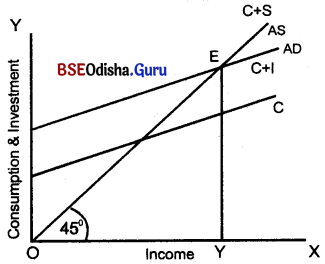
Line AD (C+I) reflects the aggregate demand curve.
Both the lines intersects at point E resulting equilibrum level of income. E also reveals the point of effective demand corresponding to this point (E), OY – level of income is determined which is the equilibrium level of income.
![]()
Question 3.
Explain the concept of excess deihand & deficit demand with the help of diagram.
Answer:
Deficit demand and excess demand are two terms which are frequently used in any discussion on Keyne’s theory of employment and income. According to Keynes it is the aggregate demand or effective demand which determines the level of employment and the equality between aggregate demand and aggregate supply determines the equilibrium level of employment. With regard to equilibrium three situations can be visualised viz. full employment equilibrium, less than full employment equilibrium and more than full employment equilibrium.
At the level of full employment equilibrium aggregate demand is equal to aggregate supply. At this situation all resources fully utilised and all able bodied persons willing to work at the prevailing rate of wages get employment. Otherwise there will be involuntary unemployment. This is due to inadequacy of demand which is otherwise called deficit demand.
Deficit demand: Deficit demand refers to a situation where aggregate demand falls short of aggregate supply corresponding to the level of full employment. The short fall in the aggregate demand from the level of full employment equilibrium is called the deflationary gap. The case of deficit demand is shown in the following diagram :
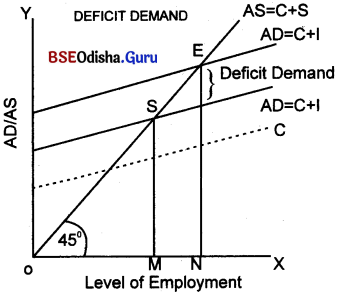
In the diagram ON represents full employment level of output. AD represent the aggregate demand and AS represents the aggregate supply. Intersection of AD and AS and ‘E’ suggests the income at full employment equilibrium. If the level of income shifts to OM the aggregate demand becomes SM and the aggregate supply becomes EN. Excess of AS over AD at full employment indicates deficit demand or deflationary gap. A deficit demand situation arises when the total demand for goods and services is not sufficient enough to ensure the buying of the existing supply of goods coming to the market at the prevailing prices. Deflation is caused by a shortage of aggregate demand relative to the total supply at given prices. Shortage in aggregate demand may be the result of either a decline in private investment or a fall in government spending or a decrease in consumption expenditure.
Excess demand : After the stage of full employment when resources are fully utilised and there is no idle resources output and employment cannot increase in response to increase in demand. This situation is described as excess demand. This situation of excess demand may be studied with the help of following diagram:
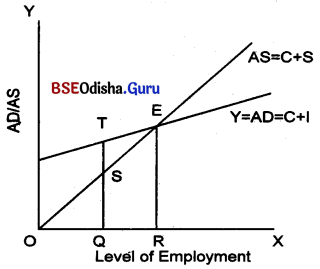
The diagram shows that OR is the level of income at full employment, the AD and AS being equal ‘E’ the equilibrium point. If the full employment position shifts to OQ the AD becomes QT and AS become SQ. Here the aggregate demand exceeds aggregate supply by TS. TS represents the degree of excess demand of extent of inflationary gap. At this situation there will be a tendency for money income prices to increase.
Group – C
Objective type Questions with Answers
I. Multiple Choice Questions with Answers :
Question 1.
Total expenditure on goods & services during a year is known as
(i) total demand
(ii) aggregate demand
(iii) Aggregate supply
(iv) all of the above
Answer:
(ii) aggregate demand
Question 2.
Aggregate demand cosists of
(i) consumption demand
(ii) investment demand
(iii) Govt, demand
(iv) all of the above
Answer:
(iv) all of the above
Question 3.
Which is not the component of aggregate demand?
(i) consumption demand
(ii) investment demand
(iii) saving
(iv) net export
Answer:
(iii) saving
Question 4.
Goods & services produced in the economy during a year indicates
(i) aggregate demand
(ii) aggregate supply
(iii) total supply
(iv) all of the above
Answer:
(ii) aggregate supply
![]()
Question 5.
Which is the component of aggregate supply?
(i) consumption
(ii) saving
(iii) investment
(iv) both (i) and (ii)
Answer:
(iv) both (i) and (ii)
Question 6.
Equilibrium level of income is determined by
(i) aggregate demand
(ii) Aggregate supply
(iii) income of the household
(iv) Both (i) and (ii)
Answer:
(iv) Both (i) and (ii)
Question 7.
Equilibrium level of income is determined at the point where
(i) AD = AS
(ii) AD > AS
(iii) AD < AS
(iv) None of the above
Answer:
(i) AD = AS
Question 8.
Full employment is a situation in which AD is equal to
(i) AS
(ii) saving
(iii) investment
(iv) all of the above
Question 9.
It the AD > AS at full employment the effect shows
(i) increase in output
(ii) increase in national income
(iii) increase in price
(iv) all of the above
Question 10.
If AD > AS, the price-level will
(i) rise
(ii) fall
(iii) remains constant
(iv) none of the above
Answer:
(iv) all of the above
Question 11.
If AD > AS, the employment will
(i) increase
(ii) decrease
(iii) remains unchanged
(iv) Both (i) and (ii)
Answer:
(i) increase
Question 12.
If there is deficit demand, the effect on economy is .
(i) fall in price
(ii) fall in output
(iii) fall in employment
(iv) all of the above
Answer:
(iv) all of the above
Question 13.
If AD < AS at full employment, the result is ,
(i) unemployment
(ii) under employment
(iii) excess employment
(iv) disguised employment ,
Answer:
(i) unemployment
![]()
Question 14.
It available supply of goods becomes equal to demand but some resources remain unutilised, it is a case of
(i) unemployment
(ii) under employment equilibrium
(iii) full employment equilibrium
(iv) none of the above
Answer:
(ii) under employment equilibrium
Question 15.
The under employment equilibrium results some unutilised resources, but the demand for goods becomes
(i) greater than available supply
(ii) less than available supply
(iii) equal to available supply
(iv) Both (i) and (ii)
Answer:
(iii) equal to available supply
Question 16.
Which is not the outcome of excess demand?
(i) inflation
(ii) deflation
(iii) unequal distribution of income
(iv) Both (i) and (ii)
Answer:
(ii) deflation
Question 17.
Which is not the result of deficit demand?
(i) Inflation
(ii) deflation
(iii) fall in profit
(iv) fall in national income
Answer:
(i) Inflation
Question 18.
Unemployment results due to
(i) inflation
(ii) excess demand
(iii) deficit demand
(iv) Both (i) and (ii)
Answer:
(iii) deficit demand
Question 19.
The General Theory of Employment, Interest and Money of J.M Keynes was published in the year:
(i) 1930
(ii) 1940
(iii) 1936
(iv) 1947
Answer:
(iii) 1936
![]()
Question 20.
The Keynesian theory of employment is concerned with involuntary unemployment arising in the economy in the :
(i) Long period
(ii) Short period
(iii) Both (i) and (ii)
(iv) None of the above.
Answer:
(ii) Short period.
Question 21.
Saving and investment are brought to equality through manipulation of:
(i) Rate of interest
(ii) Saving
(iii) Income
(iv) None of the above.
Answer:
(iii) Income
Question 22.
The Marginal propensity to consume is :
(i) Equal to one
(ii) More than one
(iii) Less than one
(iv) None of the above
Answer:
(iii) Less than are
Question 23.
The propensity to consume in case of the rich is :
(i) High
(ii) Less
(iii) One
(iv) None of the above.
Answer:
(ii) Less.
Question 24.
The volume of output and employment in an economy is determined by :
(i) Saving
(ii) Income
(iii) Investment
(iv) All of the above.
Answer:
(iii) Investment
![]()
Question 25.
As income increases consumption increases and saving :
(i) Increases
(ii) Decreases
(iii) Remains the same
(iv) None of the above.
Answer:
(i) Increases
Question 26.
Effective demand includes:
(i) Consumption demand
(ii) Investment demand
(iii) Both (1) and (ii)
(iv) None of the above.
Answer:
(iii) Both (j) and (ii)
Question 27.
At the point of equilibrium :
(i) AD > AS
(ii) AD < AS
(iii) AD = AS
(iv) None of the above
Answer:
(iii) AD = AS
Question 28.
Consumption and income are
(i) Inversely related
(ii) Directly related
(iii) Not related
(iv) None of the above
Answer:
(ii) Directly related.
Question 29.
Aggregate demand is a:
(i) Decreasing function of income
(ii) Increasing function of income
(iii) Increasing function of saving
(iv) None of the above.
Answer:
(ii) Increasing function of income.
Question 30.
Investment is the function of .
(i) Income
(ii) Rate of interest
(iii) Saving
(iv) None of the above
Answer:
(ii) Rate of interest.
II. Fill in the blanks:
Question 1.
_____ brings about equality between saving and investment.
Answer:
The income
Question 2.
_____ determines the volume of output and employment in an economy.
Answer:
Investment
Question 3.
Consumption and saving both _____ with increase in income.
Answer:
increase
Question 4.
_____ is income elastic.
Answer:
Investment
Question 5.
_____ demand includes both Consumption Demand and Investment Demand.
Answer:
Effective
![]()
Question 6.
If income increases consumption expenditure increases but less than the _____ in income.
Answer:
increase ;
Question 7.
If the _____ increases, the aggregate supply increases in the same proportion.
Answer:
level of employment
Question 8.
At the point of equilibrium, AD = _____
Answer:
AS.
Question 9.
If AD = AS, the _____ must be equal to investment.
Answer:
Saving
Question 10.
Investment is the function of _____
Answer:
Rate of interest.
Question 11.
Equilibrium level of income is determined at the point where saving is equal to _____
Answer:
Investment
Question 12.
Aggregate demand is a _____ function of income.
Answer:
increasing
![]()
Question 13.
Consumption and income are _____ related.
Answer:
directly
Question 14.
The theory of income determination is propounded by _____.
Answer:
JM Keynes
Question 15.
Aggregate demand and aggregate supply are two components of _____ demand.
Answer:
Affective
Question 16.
The equilibrium level of income depends on _____.
Answer:
Effective demand
Question 17.
The consumption and saving are the two components of _____.
Answer:
Aggregate supply
Question 18.
The consumption and investment are the two components of _____.
Answer:
Aggregate demand
Question 19.
_____ demand creates inflationary pressure.
Answer:
Excess demand
Question 20.
The aggregate demand curve slopes _____
Answer:
Upward
Question 21.
If aggregate demand falls short of aggregate supply the level of national income tends to _____
Answer:
Fall
III. Correct the Sentences:
Question 1.
National Income analysis is the subject matter of micro economics.
Answer:
Incorrect.
Correct – National Income analysis is the subject matter of macro economics.
Question 2.
Macro-economics deals with the economic affairs “in the large”.
Answer:
Correct.
Question 3.
Aggregate demand consists of consumption demand & saving.
Answer:
Incorrect.
Correct – Aggregate demand consists of consumption demand & investment demand.
Question 4.
Excess demand occurs prior to the full employent.
Answer:
Incorrect.
Correct – Excess demand occurs at the full employment.
![]()
Question 5.
Deficit demand arises after the full employment.
Answer:
Incorrect.
Correct – Deficit demand arises at the full employment.
Question 6.
The demand is effective when aggregate demand is equal to aggregate supply.
Answer:
Correct.
Question 7.
Excess demand creates inflation.
Answer:
Correct.
Question 8.
Aggregate supply is inversely related to level of employment.
Answer:
Incorrect.
Correct – Aggregate supply is directly related to level of employment.
Question 9.
Aggregate demand is the function of level of employment.
Answer:
Correct.
![]()
Question 10.
If aggregate demand is equal to aggregate supply, saving is equal to investment.
Answer:
Correct.
Question 11.
Consumption expenditure increases with the increase the income.
Answer:
Correct.
Question 12.
Consumption demand depends on price-level.
Answer:
Incorrect.
Correct – Consumption demand depands on the level of income.
Question 13.
Aggregate demand curve starts from the origin.
Answer:
Incorrect.
Correct – Aggregate supply curve starts from the origin.
Question 14.
When income is zero, consumption is zero.
Answer:
Incorrect.
Correct – When income is zero, consumption demand is positive.
![]()
Question 15.
Net export is always positive.
Answer:
Incorrect.
Correct- Net export may be positive or negative.
Question 16.
Equilibrium level of income is determined at that point where aggregate demand is equal to aggregate supply.
Answer:
Correct.
Question 17.
Autonomous investment depends on the level of national income.
Answer:
Incorrect.
Correct – Autonomous investment is independent of the level of national income.
Question 18.
Consumption is the function of income.
Answer:
Correct.
Question 19.
The theory of income determination by J.M. Kevnes is a long-run theory
Answer:
Incorrect
Correct – The theory of income determination bv J.M. Kevnes is a long-run theorvThe theory of income determination bv J.M. Kevnes is a short-run theory
Question 20.
If aggregate supply falls short of aggregate demand the level of national income decreases.
Answer:
Incorrect
Correct – If aggregate supply falls short of aggregate demand the level of national income increases. .
Question 21.
The defict demand creates prifce rise.
Answer: Incorrect
Correct – The defict demand creates price fall.
IV. Answer the following questions in one word:
Question 1.
What is aggregate demand?
Answer:
Aggregate demand refers to the total expenditure incurred on consumption & investment at aparticular time period.
Question 2.
What is aggregate supply?
Answer:
Aggregate supply refers to the total flow of final goods & services during a particular time period with given level of employment.
Question 3.
What is effective demand?
Answer:
Effective demand refers to that demand at which aggregate demand is equal to agregate supply.
Question 4.
What are the components of aggregate demand?
Answer:
Consumption demand, investment demand & net export constitute the aggregate demand.
Question 5.
What are the components of aggregate supply?
Answer:
Consumption & saving are the components of aggregate supply.
Question 6.
What is excess demand?
Answer:
Excess demand refers to the excess of aggregate demand over aggregate supply at full employment level. .
Question 7.
What is deficit demand?
Answer:
When aggregate demand falls short of aggregate supply at full employment level, it is called deficit demand.
Question 8.
What is saving?
Answer:
Saving is a residual income left after meeting the consumption expenditure.
Question 9.
How is equilibrium level of income determined?
Answer:
Equilibrium level of income is determined at that level where aggregate demand equals to aggregate supply.
![]()
Question 10.
From which term ‘Macro’ is derived?
Answer:
Macro is derived from the Greek word ‘Marcos’ which means large.
Question 11.
What is Net export?
Answer:
The residual amount between export & import is called Net export.
Question 12.
What is the relationship between aggregate demand and level of employment?
Answer:
There is direct functional relationship between aggregate demand & the level of employment.
Question 13.
What are the components of aggregate demand?
Answer:
Consumption demand, investment demand, government demand & net export are the components of demand.
Question 14.
What are the components of aggregate supply?
Answer:
Consumption & saving are the components of aggregate supply.
Question 15.
What do you mean by full employment?
Answer:
Full employment is a situation in which all the existing resources in the economy are fully employed.
Question 16.
What is autonomous consumption?
Answer:
Consumption which is independent of level of income is called autnomous consumption.
Question 17.
What is autonomous investment?
Answer:
The investment which is not influenced by income is called autonomous investment.
Question 18.
What happens to saving & investment at the point of equilibrium?
Answer:
Saving & investment are equal at the point of equilibrium.
Question 19.
What is investment demand?
Answer:
Investment demand refers to the demand for that part of national income which is employed to create capital for further production.
Question 20.
What is consumption function?
Answer:
The functional relationship between consumption & income is called consumption function.

